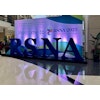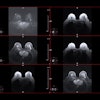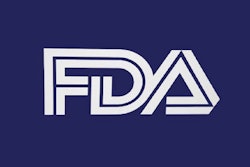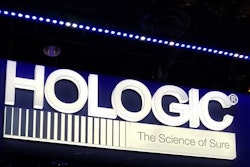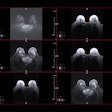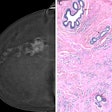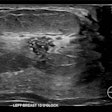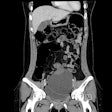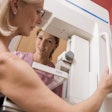Private equity firms Blackstone and TPG have signed an agreement to acquire women’s health vendor Hologic in a deal valued at up to $18.3 billion (€15.8 billion).
Under the deal, funds managed by Blackstone and TPG will acquire all outstanding Hologic shares for $76 per share in cash, along with a contingent right to receive up to $3 per share based on achievement of global revenue goals for Hologic’s Breast Health business in fiscal 2026 and 2027. The aggregate purchase price represents a premium of approximately 46% to Hologic’s closing price on 23 May -- the last full trading day before media reports of a possible transaction involving Hologic.
Hologic currently holds approximately 20% of the breast imaging market for Europe, Middle East, and Africa (EMEA), positioning it as the second largest player after GE HealthCare, according to Poornima Anil, a senior market analyst at Signify Research.
“This acquisition is likely to amplify Hologic’s regional presence, as the infusion of capital enables targeted investment in underpenetrated markets, particularly in Eastern Europe and the Middle East,” she told AuntMinnieEurope. “This also presents an opportunity for Hologic to strengthen partnerships with regional stakeholders, optimize service delivery models, and widen their offering to more focused women's health.”
It is no great surprise to see the company going private; rumours have been circulating for a while, and there were changes in senior personnel earlier in 2025, explained Steve Holloway, CEO of Signify Research. But because Hologic is one of the few surviving mid-sized firms with a specific speciality focus from a modality perspective, it’s a little surprising that none of the big four original equipment manufacturers (OEMs) decided to stump up for Hologic, he continued. “It may also come down to the diversity of its portfolio and performance vs price.”
Predicting the future is hard, but Holloway suspects the new owners will mothball or spin off some smaller asset lines, such as the dual-energy x-ray absorptiometry/skeletal health business. They might split the business into two (breast health and diagnostics/assays), and this may make the breast health division more attractive to potential buyers, especially given the strength of the mammography share in the U.S. and the associated turnkey elements (biopsy, services etc).
Large-scale private equity deals like these are typically led by two core considerations: efficiency/cost-cutting/streamlining to improve margins; and/or repositioning assets, or grouping in a way that the sum of parts of the business is worth more than the price paid for the whole. “Hence why I think they may split it in time,” he said.
Interestingly, the wider market for imaging modalities, services, AI/software, etc., is much more “turnkey”/care pathway orientated now, which should play to Hologic’s specialism, Holloway noted. “The lesser economies of scale on service/support, sales, R&D, supply chain, etc, mean it’s increasingly harder for Hologic to compete -- hence why Blackstone et al may be looking to rework the business in a way it can be added to a major vendor’s portfolio down the line.”
Pioneering role
Hologic has been a pioneering company in women’s imaging, including being the first vendor to secure U.S. Food and Drug Administration approval for a digital breast tomosynthesis (DBT) system -- Selenia Dimensions 3D -- for breast cancer screening and diagnosis in 2011. The vendor was also an active early participant in the computer-aided detection (CAD) software sector, acquiring R2 Technology in 2006.
Today, Hologic provides a broad range of women’s imaging offerings, including mammography, breast biopsy, and core specimen radiography systems. On the software side, Hologic offers applications such as its 3D Genius AI computer-aided detection software and iView 2.0 software to support contrast-enhanced mammography. The company has also branched out from its roots in women's imaging to participate in the broader women’s health sector, including a variety of lab tests for screening and molecular diagnostics.
The acquisition by Blackstone and TPG will now aid Hologic in its growth plans, according to Stephen P. MacMillan, Hologic’s chairman, president, and CEO.
"With their resources, expertise, and commitment to women’s health, Blackstone and TPG will help accelerate our growth and enhance our ability to deliver critical medical technologies to customers and their patients around the world,” MacMillan said in a statement. “This transaction delivers immediate and compelling value to Hologic stockholders, reflecting the dedication of our employees whose hard work has made this milestone possible."
Blackstone Senior Managing Director Ram Jagannath pointed to Hologic’s market position and reputation in women’s health.
“We have closely followed [Hologic] for many years and long admired the positive impact its life-changing technologies have had for millions of patients worldwide,” Jagannath said. “We are thrilled to partner with its highly talented and capable employees, alongside TPG, to further invest in Hologic’s continued product innovation and growth."
TPG Capital Co-Managing Partner Dr. John Schilling highlighted the “compelling opportunity ... to support the development of next-generation solutions that will continue to promote strong clinical results and enhance patient care.”
The companies expect to complete the acquisition in the first half of 2026, subject to the approval of Hologic’s stockholders, the receipt of required regulatory approvals, and the satisfaction of certain other customary closing conditions. Hologic’s board of directors has unanimously approved the merger agreement, and Blackstone and TPG have secured financing for the deal.
Hologic said that the transaction also includes significant minority investments from a wholly owned subsidiary of the Abu Dhabi Investment Authority and an affiliate of GIC.
Hologic’s common stock will be delisted from the Nasdaq stock market upon closure of the acquisition. The vendor will maintain its headquarters in Marlborough, MA, and will continue to operate under the Hologic name.
Notably, the merger agreement includes a 45-day period during which Hologic and its advisers may solicit, consider, and negotiate alternative acquisition proposals from third parties. Its board of directors has retained the right to terminate the merger agreement to enter into a transaction that offers a superior proposal. Hologic said it would not provide any updates on this process until it determines a disclosure would be appropriate.

